Travel Vaccinations 101: A Country-by-Country Guide
Picture this: You’re all set for your dream international adventure, bags packed and excitement building. But wait—have you considered the invisible threats lurking in your destination? 🦠 From Hepatitis A in exotic street food to the risk of rabies in wildlife encounters, travel-related diseases can turn your vacation into a nightmare.
Don’t let health concerns dampen your wanderlust! 🌍 Our comprehensive guide, “Travel Vaccinations 101: A Country-by-Country Guide,” is your passport to safe and worry-free globe-trotting. We’ll walk you through essential vaccinations, country-specific requirements, and expert planning tips to ensure you’re protected, compliant, and ready for anything. Whether you’re heading to the bustling streets of India or the serene beaches of Thailand, we’ve got you covered with up-to-date information on vaccination mandates and health advisories.
Join us as we explore the world of travel immunizations, from understanding common diseases to navigating the consequences of non-compliance. Get ready to arm yourself with knowledge and vaccines, making your next international journey as safe as it is unforgettable!
Understanding Travel-Related Diseases
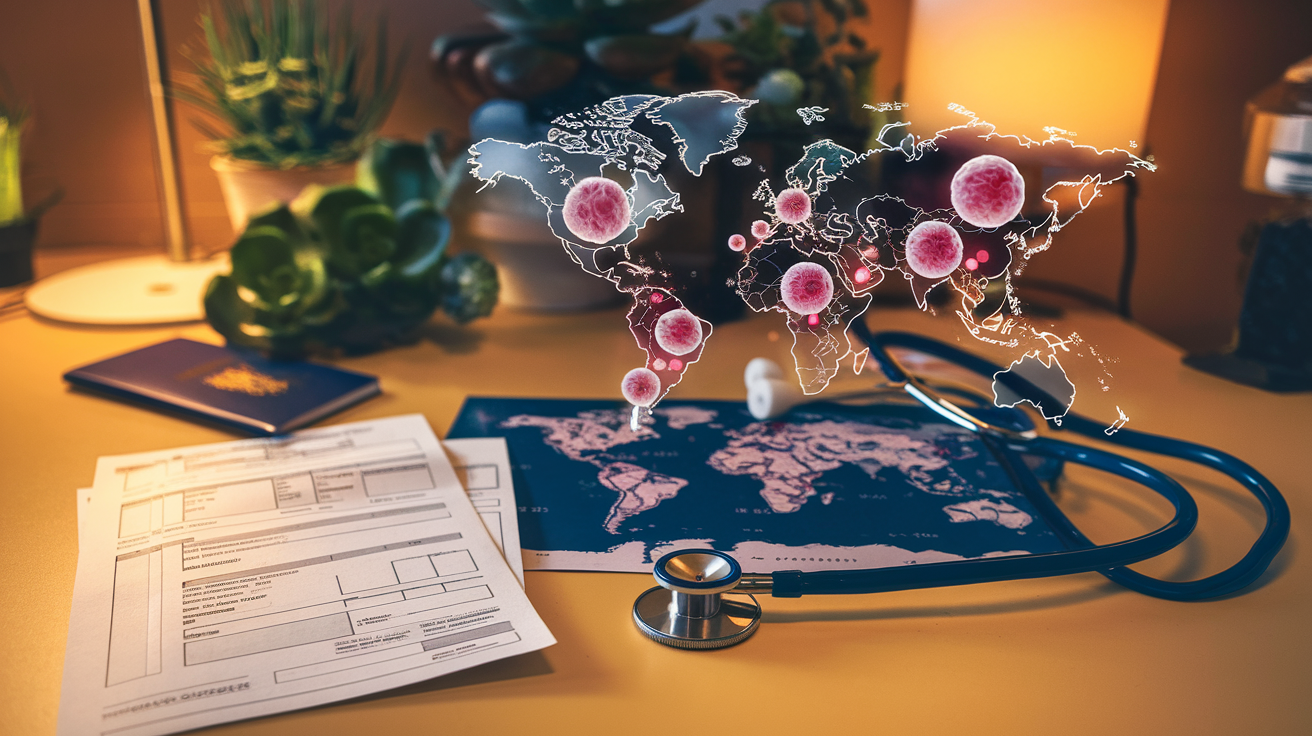
A. Common diseases and transmission modes
Travel-related diseases pose significant risks to international travelers. Some of the most common diseases include:
| Disease | Transmission Mode |
|---|---|
| Hepatitis A | Contaminated food and water |
| Hepatitis B | Sexual contact, contaminated needles |
| Typhoid fever | Contaminated food and water |
| Rabies | Infected animal saliva |
| Yellow fever | Mosquito bites |
| Japanese encephalitis | Mosquito bites |
| Cholera | Contaminated food and water |
| Meningococcal disease | Close contact with infected individuals |
| Malaria | Mosquito bites |
B. Prevention strategies: vaccination, medication, and consultations
To protect against these diseases, travelers should employ multiple prevention strategies:
- Vaccinations: Schedule appointments 4-6 weeks before travel to receive necessary vaccines.
- Medications: Take prescribed medications, such as malaria prophylaxis, before, during, and after the trip.
- Consultations: Meet with healthcare providers or travel health specialists to discuss specific health risks and recommendations.
C. Importance of routine vaccinations before travel
Routine vaccinations play a crucial role in travel health. Before embarking on international trips, ensure you’re up-to-date with:
- COVID-19 vaccine
- MMR (measles, mumps, rubella)
- Tdap (tetanus, diphtheria, pertussis)
- Influenza
- Chickenpox
- Pneumococcal
- Shingles
These vaccines not only protect against common diseases but also boost overall immunity during travel.
With this understanding of travel-related diseases and prevention strategies, we’ll now explore the Essential Vaccinations for International Travel in the next section. This will provide a more detailed look at specific vaccines recommended for different destinations and travel scenarios.
Essential Vaccinations for International Travel
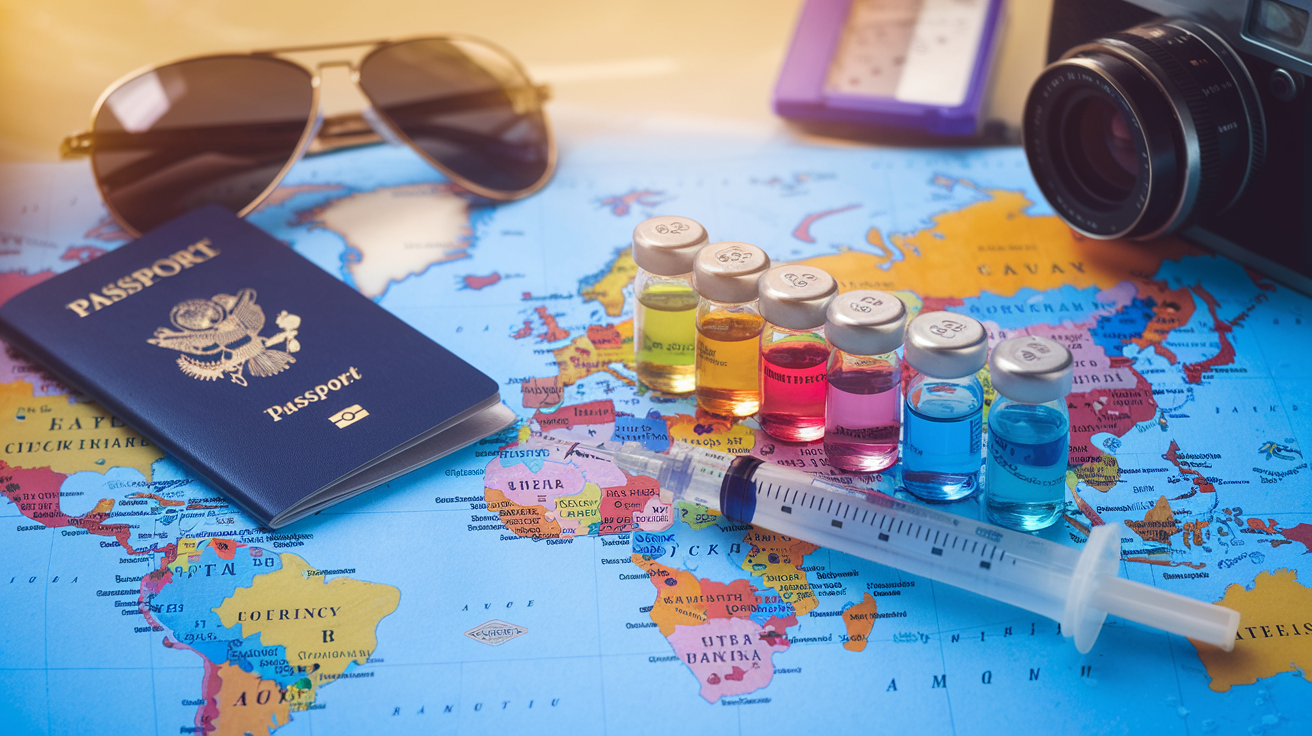
Now that we’ve explored travel-related diseases, let’s delve into the essential vaccinations for international travel. Understanding these vaccinations is crucial for protecting your health while abroad.
A. Hepatitis A and B: transmission and vaccination schedules
Hepatitis A is transmitted through contaminated food and water. Most travelers should receive a two-dose series, with the first dose given before travel and the second six months later. Hepatitis B spreads through sexual contact and contaminated needles. Non-immune travelers, especially those visiting areas with prevalence rates above 2%, should get a three-dose vaccination.
B. Typhoid fever: endemic regions and vaccination timing
Typhoid fever, also linked to contaminated food and water, requires vaccination for travelers to endemic regions. The timing of doses is specific and should be discussed with a healthcare provider.
C. Rabies: high-risk situations and vaccination schedule
Rabies is transmitted through infected animal saliva. Vaccination is recommended for high-risk situations, particularly for those spending time outdoors or working with animals. The schedule involves three doses, starting at least 21 days before travel.
D. Yellow fever: requirements for specific regions
Yellow fever vaccination is required for certain regions in South America and Africa. It must be administered at an authorized vaccination center.
E. Japanese encephalitis: recommendations for endemic areas
Japanese encephalitis vaccination is recommended for travelers to endemic areas in Asia, especially during the rainy season.
F. Cholera and meningococcal disease: specific travel considerations
| Disease | Recommendations |
|---|---|
| Cholera | Advised for adults traveling to areas with active transmission |
| Meningococcal disease | Crucial for those visiting the “meningitis belt” in sub-Saharan Africa, especially during the dry season |
It’s important to note that these vaccinations are in addition to routine vaccines like influenza and MMR, which should be up-to-date before travel. Always consult with a healthcare provider or travel health specialist 4-6 weeks before your trip to discuss your specific needs based on your destination, health status, and planned activities.
With this comprehensive overview of essential vaccinations, we’ll now move on to explore country-specific vaccination requirements, which will help you understand the exact immunizations needed for your particular destination.
Country-Specific Vaccination Requirements
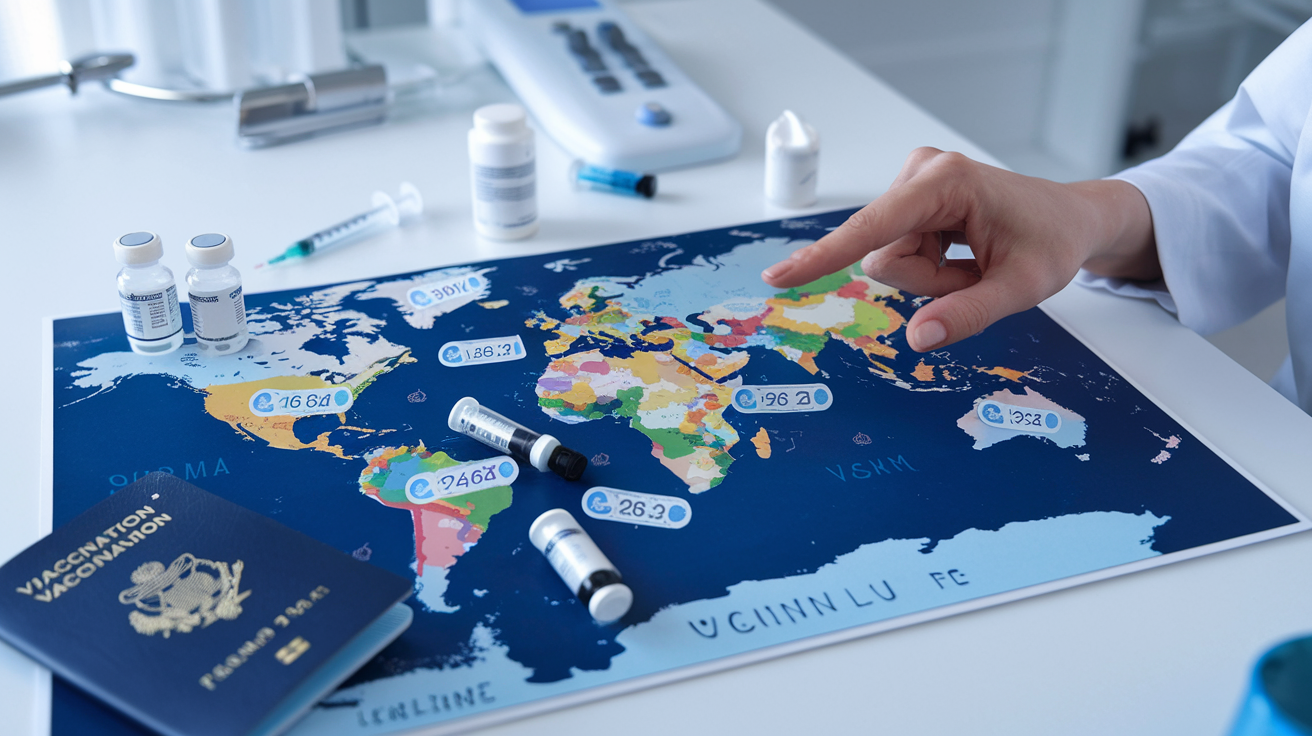
Now that we’ve covered essential vaccinations for international travel, let’s delve into the specific requirements for different countries.
Yellow Fever vaccination certificates: countries with mandatory requirements
Yellow Fever vaccination is a critical requirement for many countries, particularly those in Africa and South America. Travelers must obtain an International Certificate of Vaccination or Prophylaxis (ICVP), commonly known as the Yellow Card, at least ten days prior to entry. Some countries with mandatory Yellow Fever vaccination requirements include:
| Country | Requirement |
|---|---|
| Afghanistan | YES |
| Algeria | YES |
| Brazil | YES |
These countries typically require proof of vaccination for travelers arriving from infected areas within five days.
Destinations with no current vaccination requirements
Many popular tourist destinations do not have specific vaccination requirements for entry. However, it’s important to note that standard entry requirements like passports and visas still apply. Some countries with no current vaccination mandates include:
- Albania
- Canada
- Bahamas
As of March 14, 2024, 215 countries have reopened for tourism without any COVID-19-related travel restrictions or additional entry requirements.
Regions with uncertain requirements: importance of consulate consultation
Some destinations have uncertain or frequently changing vaccination requirements. In these cases, it’s crucial to:
- Consult local consulates or embassies for the most up-to-date information
- Check vaccination requirements well in advance, ideally 4-6 weeks before departure
- Consider utilizing resources like Global Rescue for pre-travel consultations and health information
It’s worth noting that failure to comply with vaccination protocols can result in serious consequences, including denial of entry, fines, or quarantine.
With this understanding of country-specific vaccination requirements, we’ll next explore how to effectively plan your travel vaccinations to ensure a safe and compliant journey.
Planning Your Travel Vaccinations

Now that we’ve explored country-specific vaccination requirements, let’s delve into the crucial process of planning your travel vaccinations.
A. Timing: scheduling appointments 4-6 weeks before departure
Proper timing is essential when planning your travel vaccinations. It’s recommended to schedule an appointment with a healthcare provider or travel health specialist 4-6 weeks before your departure. This timeframe allows for:
- Completion of multiple-dose vaccines
- Development of immunity (e.g., hepatitis A takes 2-4 weeks, yellow fever requires 10 days)
- Obtaining necessary documentation
| Vaccine | Time before travel |
|---|---|
| Hepatitis A | 2-4 weeks |
| Yellow Fever | 10 days |
| Multiple-dose vaccines | 6-8 weeks |
B. Consultation process: discussing itinerary and health concerns
During your pre-travel health screening, you’ll discuss:
- Your travel itinerary
- Planned activities
- Personal health history
- Potential travel risks (e.g., altitude sickness, malaria)
This consultation allows healthcare professionals to provide tailored advice and recommendations based on your specific needs and destination risks.
C. Obtaining and carrying official immunization records
It’s crucial to:
- Obtain a copy of your official immunization records
- Carry these records with you during your travels
Some vaccines require multiple doses, and having your records on hand ensures you can provide proof of vaccination if needed. For certain destinations, you may need an International Certificate of Vaccination or Prophylaxis (ICVP), particularly for yellow fever vaccination.
Remember to:
- Keep your records in a safe, easily accessible place
- Make digital copies as a backup
- Check if your destination requires specific documentation
With these planning steps in mind, we’ll next explore the consequences of non-compliance with vaccination requirements, which can significantly impact your travel plans and health.
Consequences of Non-Compliance
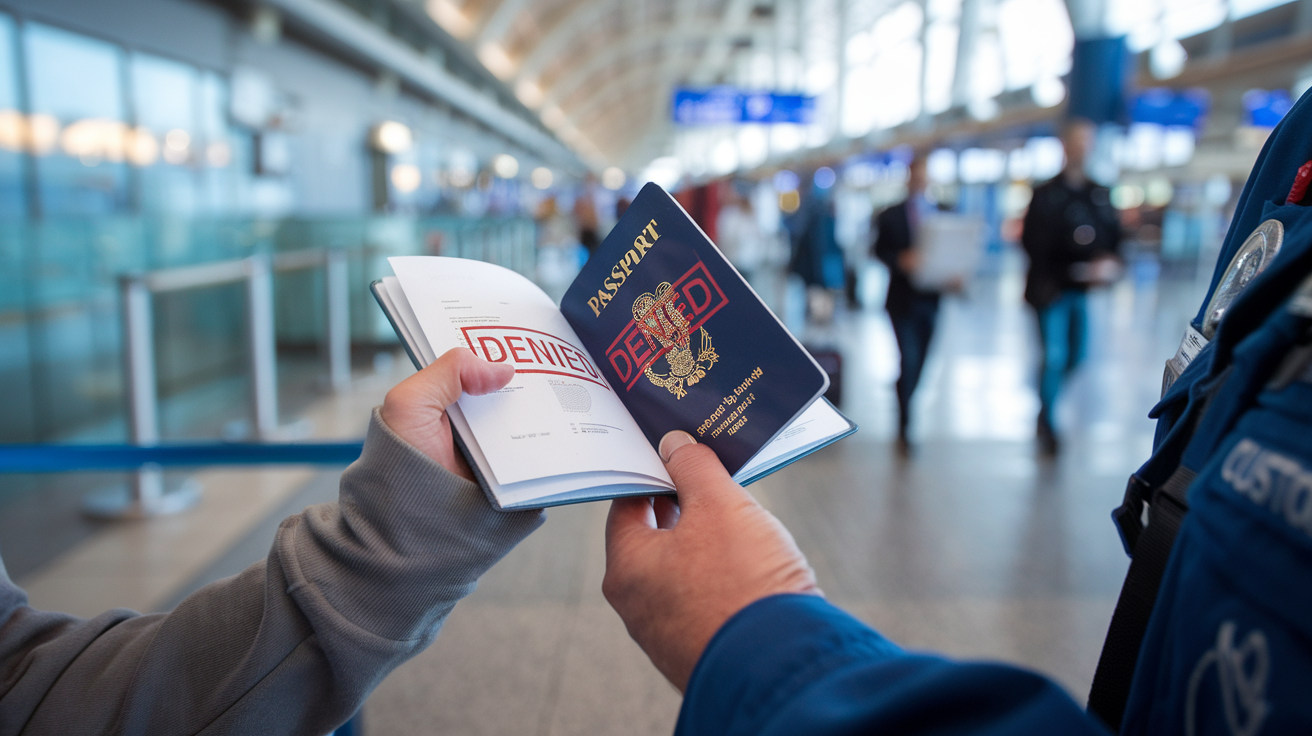
Now that we have covered the importance of planning your travel vaccinations, let’s explore the potential consequences of non-compliance with vaccination requirements.
Potential penalties: fines, quarantine, or entry denial
Failure to adhere to vaccination protocols can result in severe consequences for travelers. Countries have implemented strict measures to ensure public health safety, including:
- Fines for non-compliance
- Mandatory quarantine periods
- Denial of entry into the country
For instance, regions in Africa and South America often require proof of Yellow Fever vaccination. Travelers without proper documentation may face immediate penalties upon arrival.
| Consequence | Description |
|---|---|
| Fines | Monetary penalties for lacking required vaccinations |
| Quarantine | Isolation for a specified period to monitor health |
| Entry Denial | Refusal of entry and potential return to point of origin |
Importance of adhering to vaccination protocols
Compliance with vaccination requirements is crucial for several reasons:
- Protecting personal health
- Safeguarding public health in destination countries
- Ensuring smooth travel experiences
- Avoiding travel disruptions and additional costs
For example, Saudi Arabia mandates polio vaccination for travelers from countries with reported cases, aiming to maintain its polio-free status. Non-compliance could lead to legal consequences for both airlines and passengers.
Documentation requirements for smooth travel
To ensure a hassle-free journey, travelers must:
- Obtain valid vaccination certificates from healthcare providers or pharmacies
- Ensure documentation includes personal details and vaccination dates
- Familiarize themselves with specific destination requirements
- Check for accepted vaccine brands and alternative documentation (e.g., negative PCR tests)
As of early 2025, approximately 70% of countries require proof of vaccination against diseases such as COVID-19. Travelers should be prepared to present this documentation at various checkpoints during their journey.
With these consequences and requirements in mind, next, we’ll explore the valuable resources available for travelers to stay informed and prepared for their international trips.
Resources for Travelers
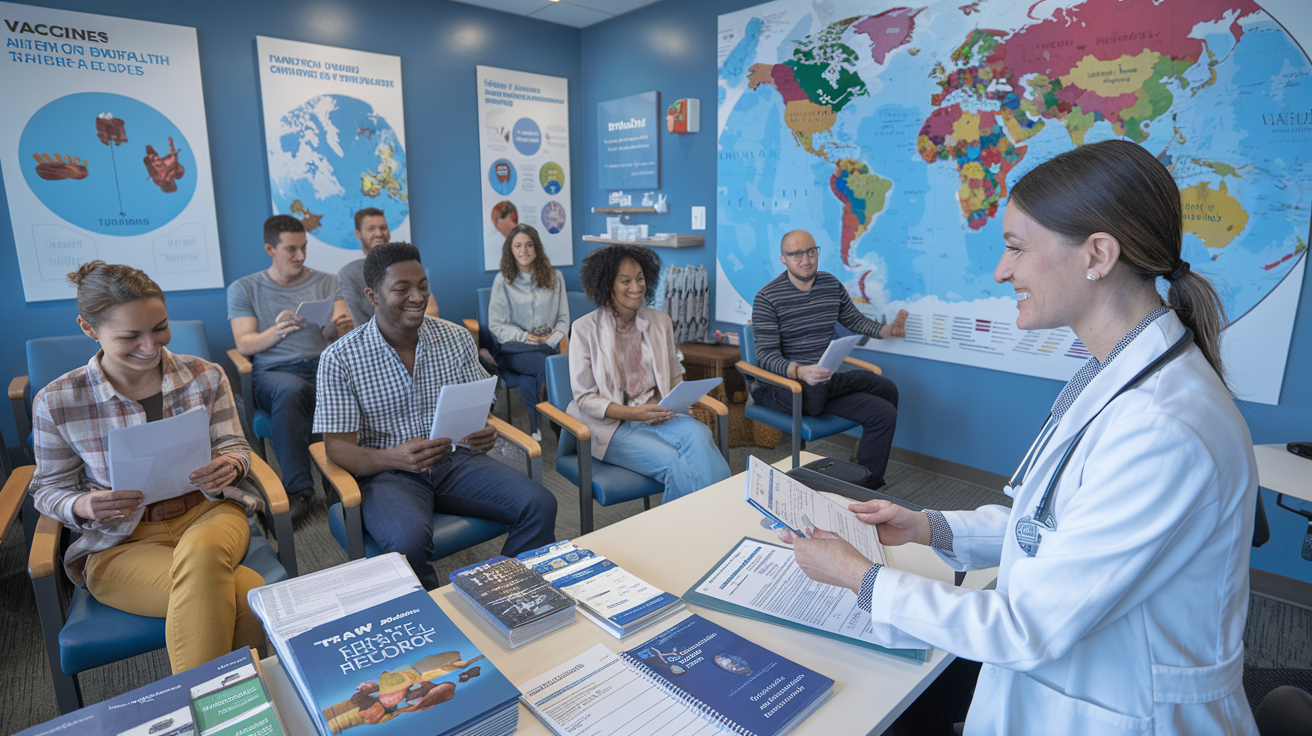
Now that we’ve explored the consequences of non-compliance with vaccination requirements, let’s turn our attention to the valuable resources available for travelers planning their immunizations.
A. CDC destination pages and Find a Clinic tool
The Centers for Disease Control and Prevention (CDC) offers comprehensive resources for travelers:
-
Destination Pages: Provide essential travel health information, including:
- Necessary vaccines
- Recommended medicines
- Potential health risks specific to your destination
-
Find a Clinic tool: Helps locate facilities offering specific vaccines or medicines
Pro Tip: Schedule an appointment with a healthcare provider or travel health specialist 4-6 weeks before departure to discuss:
- Health concerns
- Travel itinerary
- Planned activities
This allows for tailored advice and recommendations based on your specific needs.
B. Global Rescue: assistance with vaccination requirements
While the reference content doesn’t explicitly mention Global Rescue, it’s important to note that various organizations offer assistance with understanding and meeting vaccination requirements. Travelers should:
- Carry a copy of official immunization records during travel
- Be aware that some vaccines require multiple doses
- Take malaria prevention medications as prescribed (before, during, and after the trip)
C. Authorized vaccination centers for specific vaccines
Some vaccines, like yellow fever, must be administered at authorized vaccination centers. These centers often provide additional pre-travel health services.
| Vaccine | Administration Requirements |
|---|---|
| Yellow Fever | Must be given at authorized centers |
| Routine Vaccines | Often available from primary healthcare providers |
| Travel-Specific Vaccines | May require specialized clinics |
Common travel vaccines that may be necessary include:
- COVID-19
- Hepatitis A and B
- Japanese encephalitis
- Typhoid
- Rabies
- Cholera
- Meningococcal disease
Remember to consult the CDC’s resources or a travel health specialist to determine which vaccines are required or recommended for your specific destination and travel plans.

Navigating the complex world of travel vaccinations is crucial for a safe and worry-free journey. By understanding travel-related diseases, essential vaccinations, and country-specific requirements, you can protect yourself and comply with international health regulations. Remember to plan your vaccinations well in advance, ideally 4-6 weeks before departure, and consult with healthcare providers or travel medicine specialists for personalized advice.
Your health and safety should always be a top priority when traveling. Take advantage of resources like the CDC’s destination pages and Global Rescue services to stay informed about the latest health advisories and vaccination requirements. By being proactive and prepared, you can ensure a smooth travel experience while minimizing health risks. Don’t let preventable diseases derail your adventures – make travel vaccinations an essential part of your trip planning process.







